Do you want to know how to blog anonymously?
You’ve arrived at the ideal location.
We’ll address the important topics of what anonymous blogging is, why it matters, and how to accomplish it in this article.
Let’s first investigate whether that is actually possible before moving further.
Can You Blog Anonymously?
A blog can be started, promoted, and made profitable even if you operate it anonymously. Bloggers are not required by law to reveal any personal information about themselves, including their true names.
Contrary to popular belief, anonymous blogs are rather popluar.
A blog is most likely anonymous if you come across one without a name on the “About” page.

A pseudonym is typically used by anonymous bloggers in order to hide their true identities.
What is a Pseudonym?
A pseudonym is simply a fancy term for a “fake name,” which is what most people use these days. It is generally employed to characterize made-up names that writers and journalists utilize.
When posting things online, people frequently utilize pseudonyms if they anticipate receiving backlash for their views.

However, a blogger’s reputation is linked to authority in the blogosphere.
If a lot of people read your blog, they might be interested in learning more about the person who writes it. If you’re like the majority of bloggers, you would also prefer your real name to be given credit for the blog’s success.
Should I use my real name on my blog?
In general, it is appropriate for you to use your real name on your blog. It will provide you with a humanized brand that consumers will identify with as trustworthy, relatable, and approachable.
To be honest, I think that blogging allows you to get the “full experience” by allowing you to create a digital extension of your identity.
You can:
- Make worthwhile links with influential individuals
- Become recognized as an expert in your field.
- Increase your employability to major corporations by using your blog.
- Present your blog in person at conferences and other gatherings.
- Give something lasting in your name.
Having said that, you are aware that I have been making my identity known on my blog since the beginning.
That does not, however, imply that blogging anonymously is completely useless.
Benefits of Blogging Anonymously
There are actually a few surprising yet valid reasons to blog anonymously:
1. Freely Express Your Opinions

You can say anything you want on an anonymous blog.
You are free to discuss any of your beliefs, whether they are merely personal, political, or religious. Additionally, you never run the risk of becoming the object of an internet witch hunt when you blog under a pseudonym.
Nobody will use your viewpoint against you, regardless of what it may be.
2. Protect Other People’s Identities

Remaining anonymous when blogging about actual events will safeguard the identities of the people who share them.
Let’s imagine you wish to write a blog post detailing your dislikes for your supervisor.
If you’re not anonymous, readers will still be able to identify the person even if you cover their name. They can put together details about you, such as your residence, place of employment, and hours worked.
Before you know it, an internet mob is openly shaming and threatening your boss.
All it takes to avoid such things is to take your real name off your site.
3. Keep Your Blogging & Personal Life Separate

It might be challenging to draw a line between your personal and professional lives when you work as a full-time blogger.
The subject of your blog might not sit well with the individuals you know in real life. However, readers who disagree with you might challenge or reject your views by drawing on your real-world experience.
Consider blogging about the risks associated with social media while managing social media accounts.
There’s little doubt that some of your professional network, including clients, colleagues, and employers, will be wary of working with you.
4. You Enjoy Writing Privately

There are moments when you just act without thinking about a strong enough motive for others to understand.
You might blog anonymously just for the sake of using a pen name that you find enjoyable.
It may surprise you to learn that some people find it awkward to think about disclosing personal information online. These folks frequently blog, open up about personal issues, and leave comments on Facebook using a pseudonym.
5. It’s In Your Contract

Your employer could prevent you from building a website that promotes rival businesses if you have a non-compete agreement.
Even if you’re not advertising your services clearly, this is still true.
Ultimately, displaying your proficiency on your blog may result in inquiries from potential clients in need of your abilities.
Maintaining the privacy of your site will undoubtedly help you stay out of trouble.
6. You’re Just Testing The Waters

What if you wish to launch a blog in an unknown market?
You wouldn’t want your personal brand to be impacted by the performance of your new website, would you?
Even if your new website fails, your personal brand will remain alive if you use a pseudonym.
This is typical in the online marketing sector, as business owners invest in multiple “money” websites across various niches.
7. Your Real Name Isn’t Brandable

Blogging under pseudonyms can be used as a marketing tactic.
You need a name for your blog that “clicks” if you want it to be identifiable and memorable.
Some people are fortunate enough to have well-known names like “Rand Fishkin,” “Brian Dean,” and “Neil Patel.” However, adopting a pseudonym can be a wise choice if your name is difficult to say or recall.
8. You’re Trying To Expose Something

And last, personal safety may have an impact on online privacy.
There are many who wish to use as a platform to bring attention to contentious issues. I am referring to exposes of unethical business practices, political scandals, and corporate espionage.
It’s likely that you have no interest in these things. But if you are, you have to keep your true identity a secret.
Disadvantages of Blogging Anonymously
As shown by the results, blogging anonymously can still be quite profitable.
However, hiding your identity exposes you to the following drawbacks:
1. You Can’t Rely on Your Own Social Media Reach
You cannot utilize your own social media profile to promote material if you are an anonymous blogger. You’ll need to start your anonymous blog from beginning by making an official page.
2. You Miss Out on being seen as an Authority
You cannot claim credit for the labor you have put into your anonymous blog, whether you like it or not. It shouldn’t be referred to be an anonymous blog otherwise.
3. Engagement will be lower at first
A multitude of variables can cause anonymous blogs to initially struggle with reader engagement. One reason is that users of the internet prefer to communicate with actual people rather than anonymous websites with no social media presence.
4. Password Management becomes a Hassle
Bloggers who remain anonymous frequently have several email addresses and user identities on several websites. Keeping track of your list of login credentials will be difficult if you don’t have a good password manager.
5. It’s hard to be truly “Anonymous”
You might need to connect payment channels to your personal bank account if you intend to monetise an anonymous blog. You can still keep your information private, but if you want to blog about important subjects, exercise careful.
How to Start a Blog Anonymously and Still Make Money?
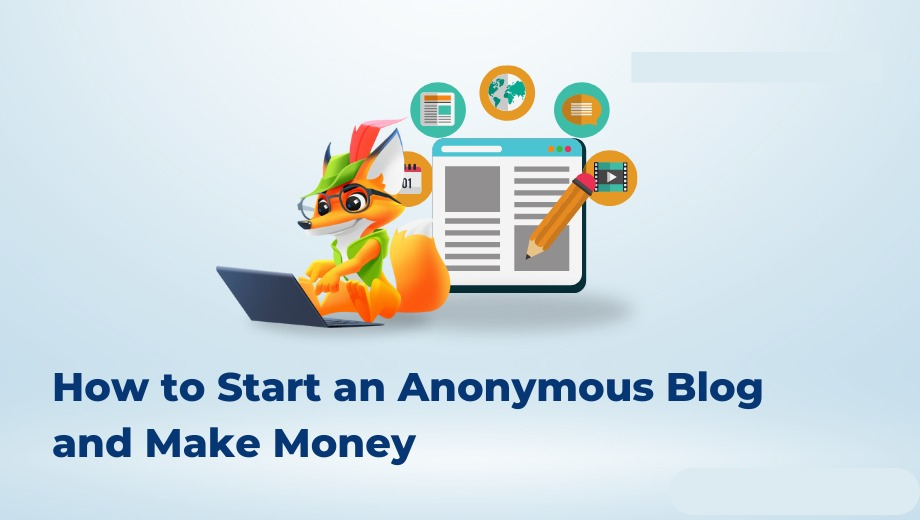
The good news is that normal blogs and anonymous blogs alike can still be made money.
Just keep in mind that your early choices will have an impact on your revenue in the future.
First, let’s talk about the blogging systems that enable you to build an anonymous blog.
Where can I blog anonymously?
On popular blogging systems like WordPress and Blogger.com, you may start an anonymous blog. Additionally, websites that prioritize anonymity, such as Write.as, promote anonymous blogging.
Let’s examine your possibilities in more detail:
1. WordPress

The first platform you have to think about using if you want to monetize your anonymous blog is WordPress. This tutorial will teach you how to create a WordPress blog.
2. Blogger

You can use Blogger to get started if you would prefer to spend time creating content rather than creating a website from the ground up. It’s a free blogging platform with an emphasis on producing content rather than building websites.
3. Write.as

Write.as is a simple blogging platform that makes the process of writing and publishing content faster. It is designed especially for writers, bloggers, activists, and students who need a quiet place to write.
4. Telegra.ph

In relation to writing without interruptions, Telegra.ph is an easy-to-use application for anonymous blogging. All you have to do is create a post title, enter an imaginary title, write, and select “Publish”—there are no requirements.
5. Wix

Wix achieves the ideal ratio of functionality to user-friendliness. With this drag-and-drop, freemium website builder, you can quickly create a blog with a polished appearance.
How to promote your blog if it is anonymous?
There is no distinction between marketing an anonymous blog and a conventional blog that bears your name. It’s still accessible through social media, advertisements, comments, and websites like Reddit.
How to choose a pen name for your blog?
As long as you’re comfortable with it, you can use any pen name or pseudonym you can think of. You may also choose to employ creative terms, such as “Mrs. Silence Dogood” by Benjamin Franklin and “Lemony Snicket” by Daniel Handler.
Here are a few more interesting examples of pseudonyms from famous authors:
- Stan Lee – Stanley Martin Lieber
- Richard Bachman – Stephen King
- Robert Galbraith/J.K. Rowling – Joanne Rowling
It’s possible that you have ideas for your false identity even before you decide to blog anonymously.
If not, you can make use of an application such as Reedsy’s Pen Name Generator:
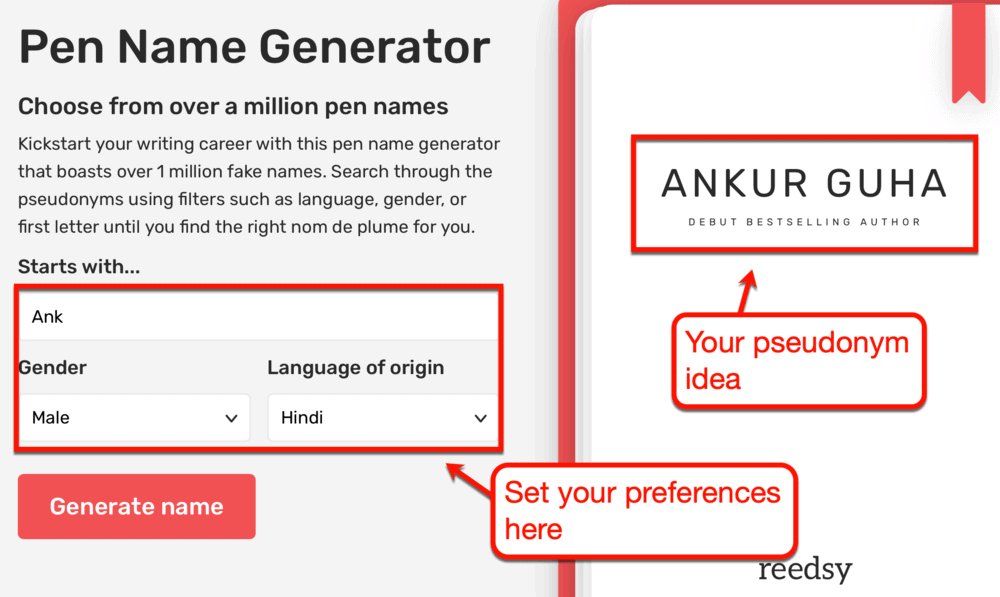
Still having trouble thinking of a pseudonym?
Here are a few more tips:
- Use a name from your own ethnicity: If the demographics of your audience align, it’s a good idea to base your pseudonym on your ethnicity. If the UK is where my target audience is from,
- Use an anagram: Anagrams can be made by switching around the letters in a word, phrase, or name. If your name is Paul March, for instance, your pen name might be “Chap Lamur.”
- Consider your niche: Adding appropriate terms to your pseudonym can help it become more memorable and appealing. If you’re in the cooking sector, for instance, you may use “BBQ Barry” or “Honey-Dipped Hannah.”
- Think of your past nicknames: Many people have childhood nicknames that have nothing to do with who they really are. For those who are aware of it, you can use that nickname with a small modification if you belong to that group.
- Just use your first name: You can use your generic first name, such as Megan or John, on your anonymous blog without risk. Although it’s not the best strategy, it does help by bringing some of your personality to your job.
How to Promote Anonymous Blog?
Now that you have your pen name ready, let’s discuss how to market your blog and attract high-quality visitors.
1. Promoting Your Blog on Social Media
Anonymous bloggers can gain free publicity by sharing their posts on social media, just like normal bloggers can.
The first thing I would do is install a social sharing plugin to help me and my readers with the process.
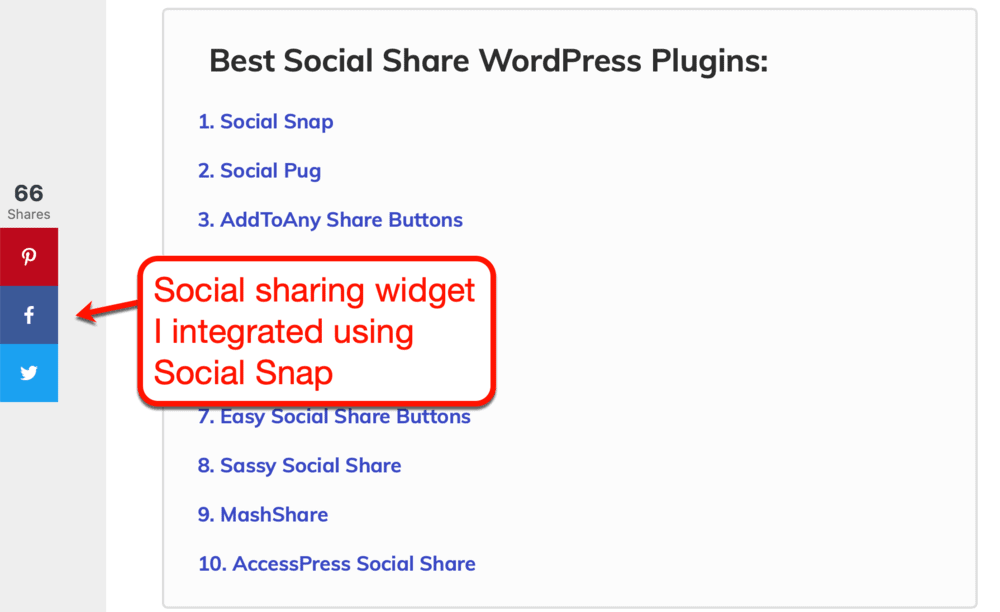
One positive approach is to encourage your readers to share your post.
But you have to carry out the majority of the labor-intensive work yourself if you want to drive your social media presence.
You can make advantage of every tip in the book, including interacting with other users, posting content frequently, and joining groups.
Like Megan did with Mom’s Got It Made, I also advise setting up an official Facebook page for your site.

How to Post Anonymously on Facebook?
Make an anonymous Facebook profile to start with so that no one can find you. After that, you can use your anonymous profile to communicate with other users, join groups, and share posts.
Here, a pen name will come in quite handy.
It will enable you to quickly complete tasks like creating an anonymous email account and signing up for services.
What’s more, it will help you accelerate the Facebook signup procedure. After that, all you need to validate your brand-new profile is a working email address.
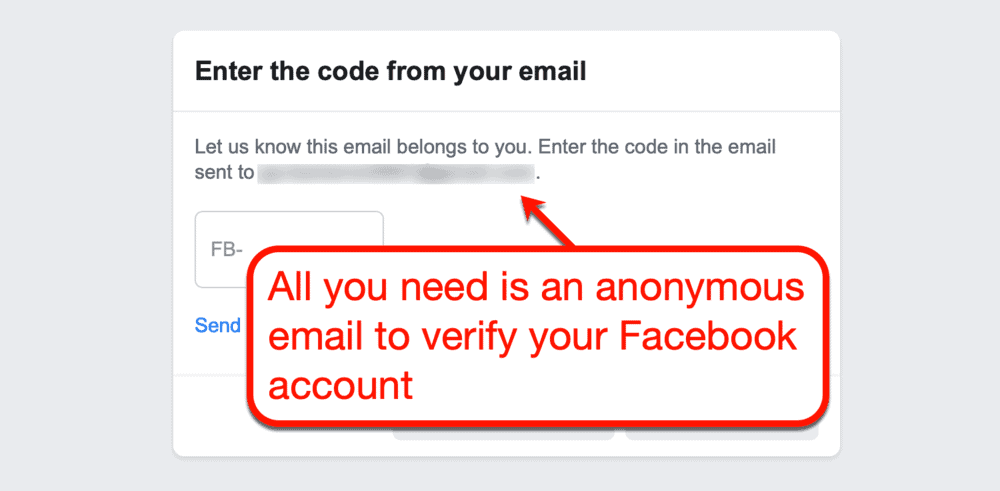
Once your new Facebook account is complete, register for accounts on other social networks using your pseudonym and anonymous email.
You should use every resource available to you as an anonymous blogger in order to promote your material. For this reason, you want to think about opening anonymous accounts on as many networks as you can, such as:
- Quora
That’s all; you’ve now set up your social media distribution channels for your anonymous blog’s material.
2. Guest Blogging
It shouldn’t stop you from looking for guest blogging opportunities just because you write anonymously.
By utilizing another website’s internet audience, guest blogging enables you to increase your visibility. It can also provide your blog the backlinks it needs to rank higher in search results.

Here’s a quick rundown of the steps to successful guest blogging:
- Find relevant link sources: Look for reputable websites that welcome guest blogging contributions. To find out which links are coming from a competition, you can listen on their backlink profile.
- Reach out: Contributors can propose guest posts to reputable websites in a variety of ways. Either a registration form or only email pitches may be used.
- Review their guidelines: When submitting guest fragments, certain websites mandate that you conform to specific content criteria. Go ahead and do that if it fits your content style, or try to respect their choices.
- Add backlinks where they count: Ideally, the website where you are guest posting accepts backlinks that are contextual—that is, backlinks that are included within the content. You can still include backlinks in your author bio if not.
- Promote your guest posts: It goes without saying that you should also make an effort to promote your own guest fragments. To increase the traffic and rankings of those posts, try to construct tier-two links pointing to them.
3. Email Marketing
Creating your own email list shouldn’t be hindered by the fact that you blog anonymously.
By doing this, you’ll be able to send your audience personalized messages and newsletters and generate recurring visitors.
Use techniques like providing opt-in bribes to enhance conversions and gain more members. For instance, Carl Jensen of MoneyMow provides his email subscribers with a complimentary eBook.
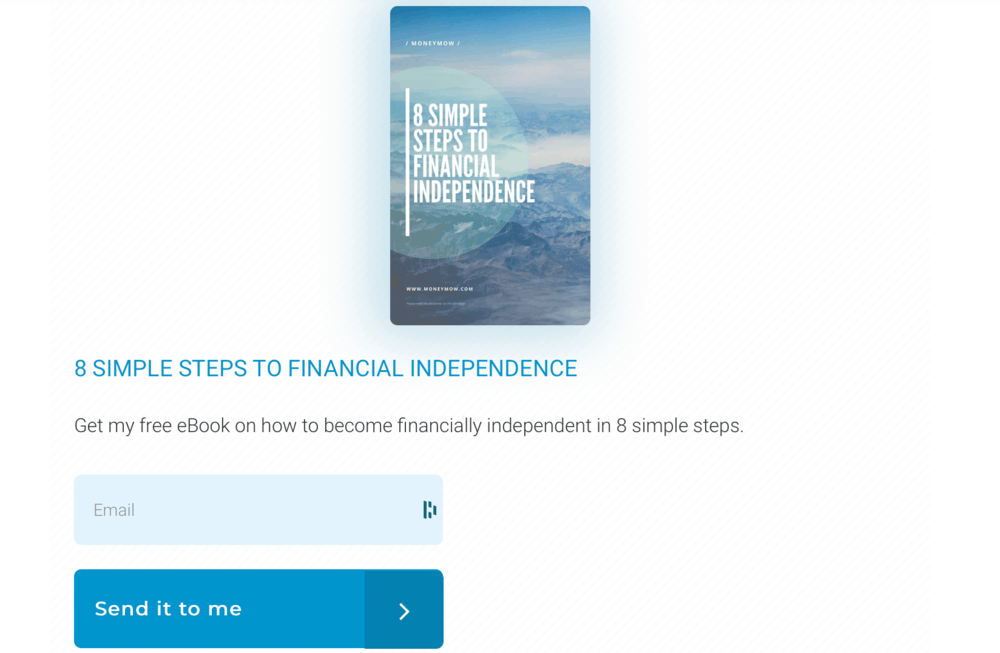
Here are some of the emails you can broadcast to your list:
- Welcome email
- Weekly roundup of posts
- New product or service promotion
- Birthday email
- Special discount or offer
You’ll need a strong email marketing service in order to configure some of the emails mentioned above.
4. Paid Ads
As soon as you start making money from your site, consider starting an advertising campaign to drive more traffic.
Facebook advertisements hold great potential due to several factors.
In addition to having a large user base, the website offers flexible ad formats and effective targeting.

Just keep in mind that you need a clear sales funnel in order for paid advertisements to be profitable.
What is a Sales Funnel?
A series of actions designed to transform your audience from site visitors into paying clients is called a sales funnel.
The four steps of a standard sales funnel model are awareness, interest, decision, and action.
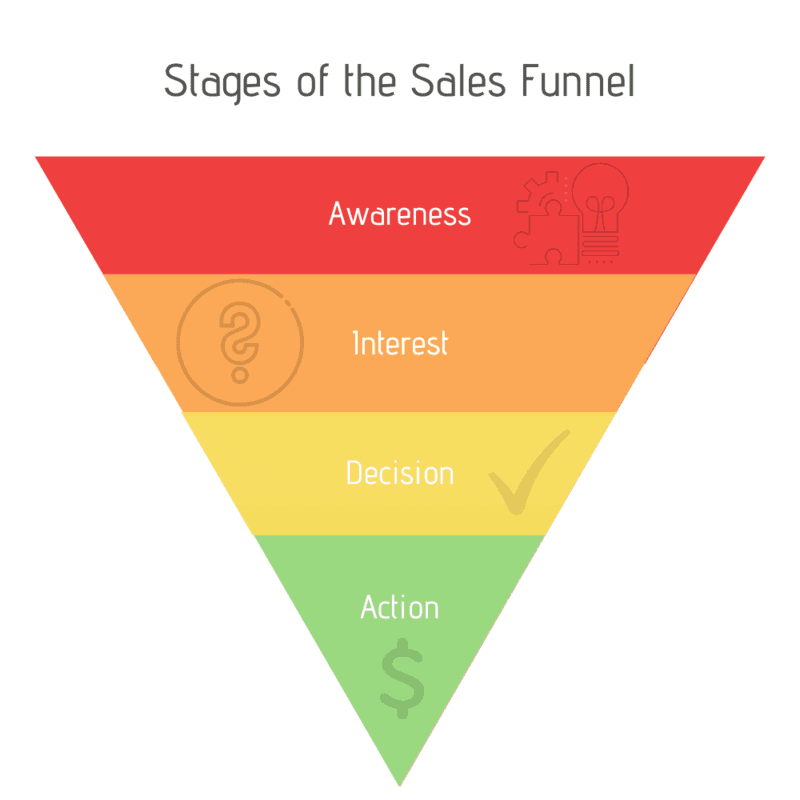
You will lose more money than you make if you invest in advertisements too soon and don’t consider monetization.
How to Make Money with an Anonymous Blog?
Now that we’ve covered the topic of monetization, let’s talk about how anonymous blogs can make money.
Let’s go over some ideas real quick:
1. Affiliate Marketing
Affiliate marketing allows you to earn money without disclosing your identity to the public. Through affiliate marketing, you can promote the goods of other businesses and receive commissions as passive income.
2. Ad Placements
Many anonymous blogs, such as Illness Called Debt, rely on advertising to monetize their sites. Although it doesn’t yield the same profits as affiliate marketing, it saves you the extra effort of producing affiliate material.
3. Sell Your Own Products
Making and selling your own digital goods is an additional profitable monetization tactic. Self-publishers on Amazon have been making money by selling eBooks under fictitious names for years.
4. Build an Online Course
Although you can use a pseudonym to sell online courses, it will engage students more if they are aware of your true name. It should be noted that if you like to remain anonymous, you are unable to record a video in which your face appears.
5. Ask for Donations
You may request donations from your readers if content creation is your primary value proposition and blogging is your passion. This can be accomplished by adding a PayPal donation button or by using websites such as Patreon.
Conclusion
That’s it: a guide on blogging anonymously and earning money for your work.
Recall that operating and making money from an anonymous blog is the same as from a regular blog.
The only distinction is that you have to complete all tasks while hiding your true identity under a pen name.
I advise taking a little leave. After getting some rest, choose a blogging platform and a pseudonym to use for your website.
